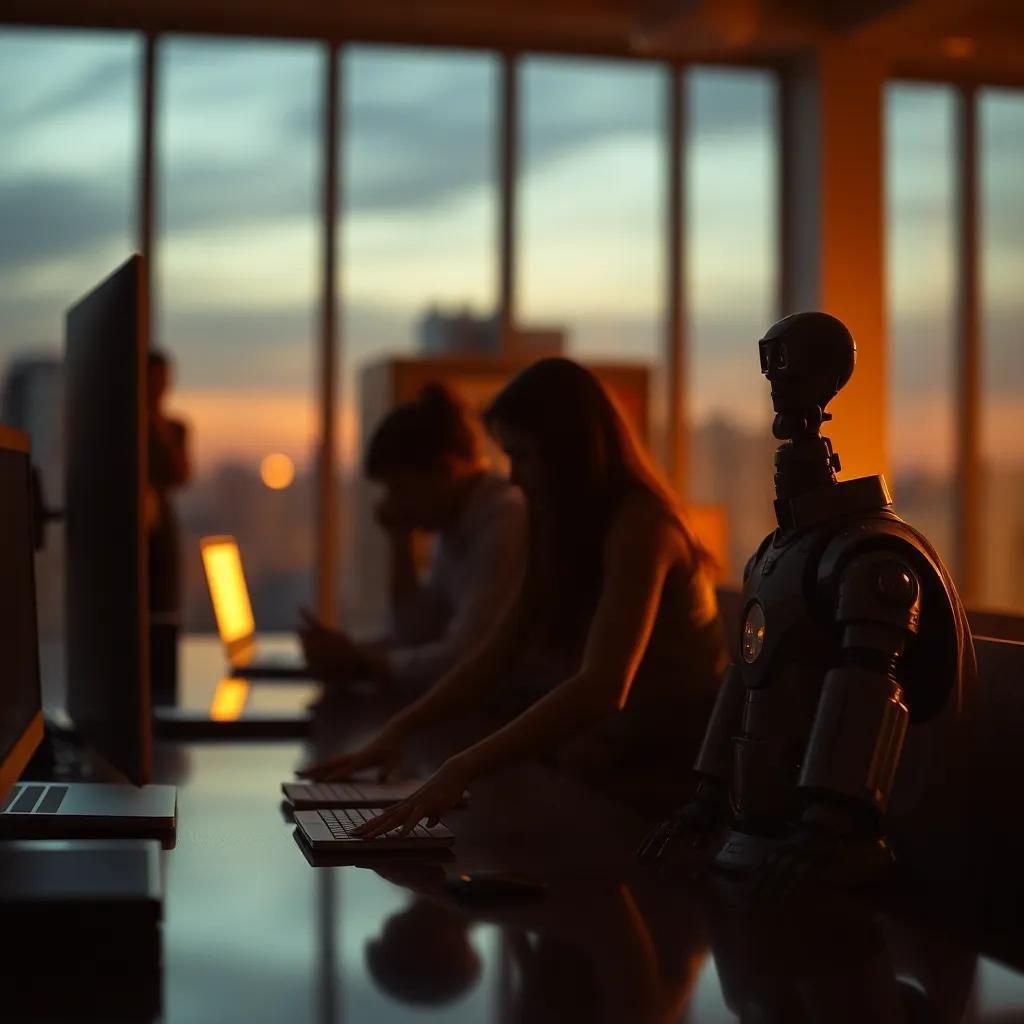Table of Contents
Unleashing Future Potential

Have you ever imagined walking into an office where your coworkers are not human? The rise of Artificial Intelligence (AI) is reshaping our workplaces in unprecedented ways. As AI becomes integral to business processes, understanding its effects on the workforce is crucial for adapting and thriving in our new reality. In this article, we will explore how AI influences job roles, enhances productivity, and transforms workplace culture.
Shifting Job Landscapes
AI is not just a tool; it’s a transformative force reshaping job roles across industries. Understanding these shifts helps workers and employers adapt to new realities.
- Job Creation vs. Job Displacement
- Creation: AI generates new job categories, such as AI trainers and data scientists.
- Displacement: Routine tasks may become automated, impacting clerical roles.
- Skills Evolution
- Workers are required to update their skills periodically.
- Lifelong learning becomes essential to keep up with AI advancements.
- industry-Specific Changes
- Healthcare: AI aids diagnosis and personalizes patient care.
- Retail: Automated checkouts enhance customer experience while reducing staff needs.
Transitioning to this AI-integrated workforce will require both workers and companies to embrace change. Adapting quickly will ensure success and productivity in this fast-evolving landscape.
Boosting Productivity
AI is set to elevate productivity levels across various sectors. The technology’s ability to streamline processes cannot be overstated.
- Automation of Repetitive Tasks
- Data Entry: Reduces errors and frees employees for more strategic activities.
- Customer Support: Chatbots handle initial inquiries, improving response time.
- Enhanced Decision-Making
- Data Analysis: AI processes vast datasets, providing valuable insights.
- Predictive analytics: Helps companies forecast trends, leading to proactive strategies.
- Harmonizing Teams
- Collaboration Software: Tools like Slack and Microsoft Teams powered by AI improve interaction.
- resource Allocation: AI optimizes team resources,ensuring efficient deployment.
AI-driven productivity may present new challenges,but it also opens doors to enhanced innovation and effectiveness. Embracing these advancements is vital for fostering a competitive edge.
Transforming Workplace Culture
AI’s integration into the workplace alters not only how we work but also how we interact. This cultural shift deserves attention.
AI fosters a culture of collaboration and innovation. Here’s how:
- Increased Employee Engagement
- AI tools can personalize employee experiences,promoting satisfaction and loyalty.
- Diversity and Inclusion
- AI reduces biases in hiring processes,promoting a diverse workforce.
- Remote Work Support
- AI technologies enhance remote collaboration, allowing seamless work across geographical boundaries.
the cultural transformation leads to a more dynamic and inclusive workplace, where employees feel valued and engaged.
Navigating Tomorrow’s Workforce

As AI continues to evolve, it is crucial to prepare for its impact on our workplaces. This means embracing change, nurturing talent, and fostering a culture of innovation. The single most important lesson to remember is that adapting to AI’s influence will define the future of work.
Reflect on how your organization can evolve with AI. Share your thoughts or insights on this transformative journey into the future. what role do you envision for yourself in this new landscape?



